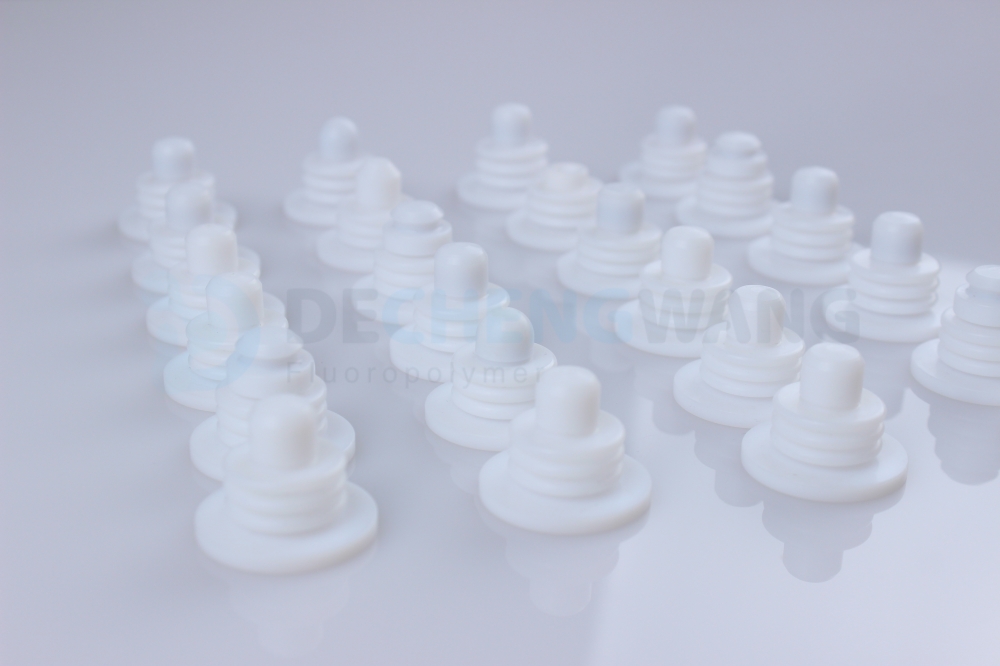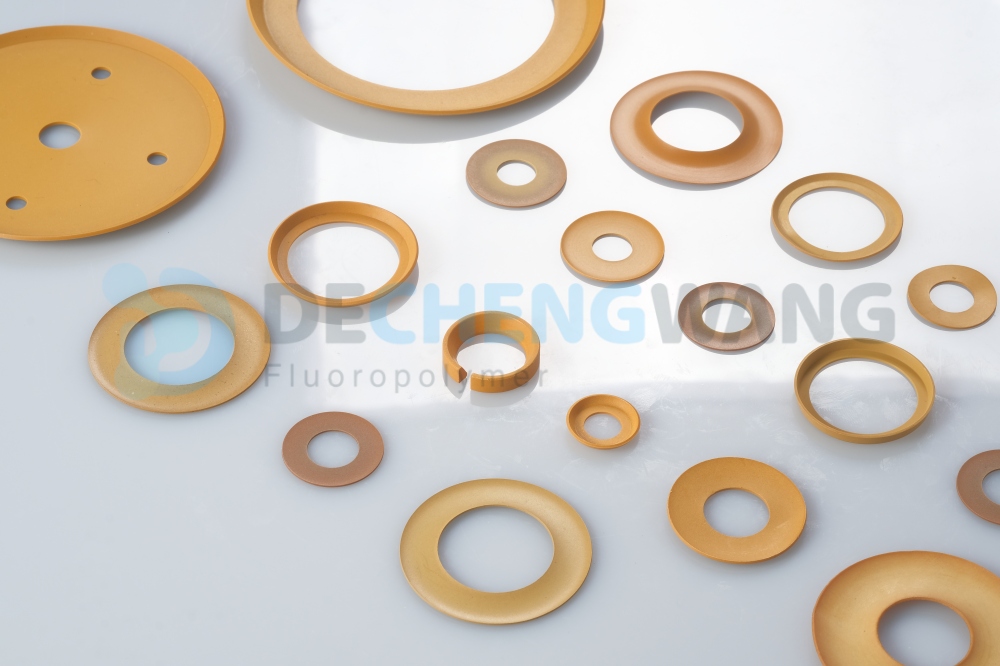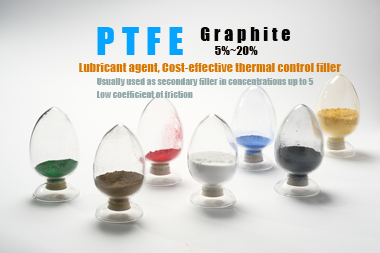PFA plastic material is a type of high-performance polymer that is widely used in various industrial applications due to its exceptional properties. It stands for Perfluoroalkoxy, which is a fluoropolymer that has a unique combination of chemical and thermal stability, low friction coefficient, excellent electrical insulation, and high resistance to corrosion, heat, and chemicals. PFA is a derivative of PTFE, (Teflon), but has additional benefits that make it a preferred choice in many industrial applications.
In this guide, we will explore everything to know about PFA plastic material, we will start by defining what is PFA and delve into its various properties. Whether you’re a manufacturer looking for a suitable material for your product or simply curious about the properties of this high-performance polymer, this guide will provide you with a comprehensive overview of PFA plastic material. Finally, we’ll conclude by an introduction to a trustworthy PFA manufacturer. Let us get started!
What is PFA Plastic Material and What are PFA Material Properties
Now that we’ve introduced PFA plastic material, let’s take a closer look at each of its unique characteristics. In the following sections, we’ll discuss the various properties of PFA in detail. This will provide you with a deeper understanding of why PFA plastic material is a popular choice in many industrial applications.
The Definition of PFA Plastic Material
PFA plastic material is a type of high-performance polymer that offers exceptional properties, including excellent chemical and thermal stability, high resistance to corrosion and chemicals, and outstanding electrical insulation. It also has a low friction coefficient, high-temperature resistance, and improved mechanical strength compared to other polymers.
As a businessman, you may find PFA plastic material a suitable option for various industrial applications, such as chemical processing, semiconductor manufacturing, and in fluoropolymer parts for food and beverage production. Its unique properties make it a preferred choice for manufacturers looking for a material that can withstand harsh conditions, maintain product integrity, and meet industry standards.
Various Properties of PFA Plastic Material
Now let’s delve into the various properties of PFA plastic material and understand how each of them contributes to its unique characteristics.
Mechanical Properties
PFA plastic material is a high-performance polymer with excellent mechanical properties that make it ideal for various industrial applications. One of its key mechanical properties is a low friction coefficient, which provides a smooth surface that reduces wear and tear, prevents sticking, and facilitates easy movement.
Additionally, PFA plastic material has a high flex life, which means it can withstand repeated bending or flexing without cracking or breaking. It also resists ignition and is self-extinguishing, making it a preferred choice for applications where fire safety is essential. Furthermore, PFA plastic material has good creep resistance, which means it can maintain its shape and dimensional stability under a constant load or stress over time.
This property is particularly important in applications where the material is subjected to constant pressure or stress, such as in valves, pumps, and other mechanical components. These mechanical properties make PFA plastic material a versatile material that can withstand harsh conditions and provide superior performance in various industrial applications.
Chemical Properties
PFA plastic material also exhibits excellent chemical properties, making it resistant to most industrial chemicals and solvents. Its non-reactive nature and chemical inertness make it an ideal choice for use in harsh chemical environments, such as chemical processing, where it is exposed to a wide range of chemicals and solvents. Moreover, PFA plastic material is highly stable at high processing temperatures, which allows it to maintain its structural integrity without degrading or reacting with chemicals.
Another key property of PFA plastic material is its excellent resistance to corrosion, making it a preferred choice for industrial applications that require exposure to corrosive chemicals or environments. This corrosion resistance property makes it ideal for applications in the chemical, oil, gas, and pharmaceutical industries. Overall, the chemical properties of PFA plastic material make it a reliable and durable material that can withstand harsh chemical environments.
Thermal Properties
PFA plastic material exhibits exceptional thermal properties, making it ideal for high-temperature applications. One of its key thermal properties is its wide range of temperature resistance, withstanding temperatures from -200°C (-328°F) to 260°C (500°F). This property makes it an ideal choice for applications where exposure to extreme temperatures is expected, such as in aerospace fluoropolymer parts, automotive, and semiconductor industries.
Additionally, PFA melting point strength is high, which means it can withstand the pressure and temperature required to maintain its shape and structural integrity during processing. Moreover, PFA plastic material has low thermal conductivity, which means it can maintain its temperature and resist heat transfer. This property makes it an excellent insulator for high-temperature applications, where maintaining precise temperatures is critical.
Electrical Properties
PFA plastic material also has excellent electrical properties, making it suitable for various electrical applications. One of its key electrical properties is the low dielectric constant, which means it has low electrical conductivity and does not conduct electricity easily. This property makes it an ideal choice for insulation applications where electrical insulation is essential.
Another important electrical property of PFA plastic material is its low dissipation factor, which means it has low energy loss and can maintain a high degree of electrical efficiency. This property is critical in electrical applications that require precise and reliable electrical performance.
Finally, the electrical properties of PFA plastic material make it a preferred choice for various electrical applications, including electrical insulation, wires, and cables, and other electrical components, where maintaining precise electrical performance is essential.
Generally, PFA plastic material has several outstanding performance characteristics that make it an ideal choice for various industrial applications. These include:
- Excellent chemical resistance to most industrial chemicals and solvents
- Exceptional thermal properties, withstanding temperatures from -200°C (-328°F) to 260°C (500°F)
- Low friction and high flex life
- Good creep resistance, high melt strength, maintaining its shape and structural integrity over extended periods
- Resistant to ignition, making it ideal for use in high-temperature applications
- Low dielectric constant and dissipation factor, making it suitable for electrical insulation applications
Uses of PFA Plastic
We have discussed the outstanding properties of PFA plastic material, let us take a closer look at some of the common uses and applications of this versatile plastic material in various industries.
Semiconductor Industry
Perfluoroalkoxy (PFA) is a fluoropolymer that has been widely used in the semiconductor and pharmaceutical industries due to its excellent chemical resistance, low extractability, and high purity. In the semiconductor industry, PFA is commonly used in the manufacturing of wafer processing equipment and semiconductor baskets. PFA materials provide excellent resistance to chemicals, which is crucial for processing high-purity silicon wafers.
Moreover, PFA’s low extractability ensures that the semiconductor wafers are not contaminated during the manufacturing process, which can impact their performance. One specific PFA material used in the semiconductor industry is Teflon™ PFA, which is known for its excellent chemical resistance, low extractability, and high purity.
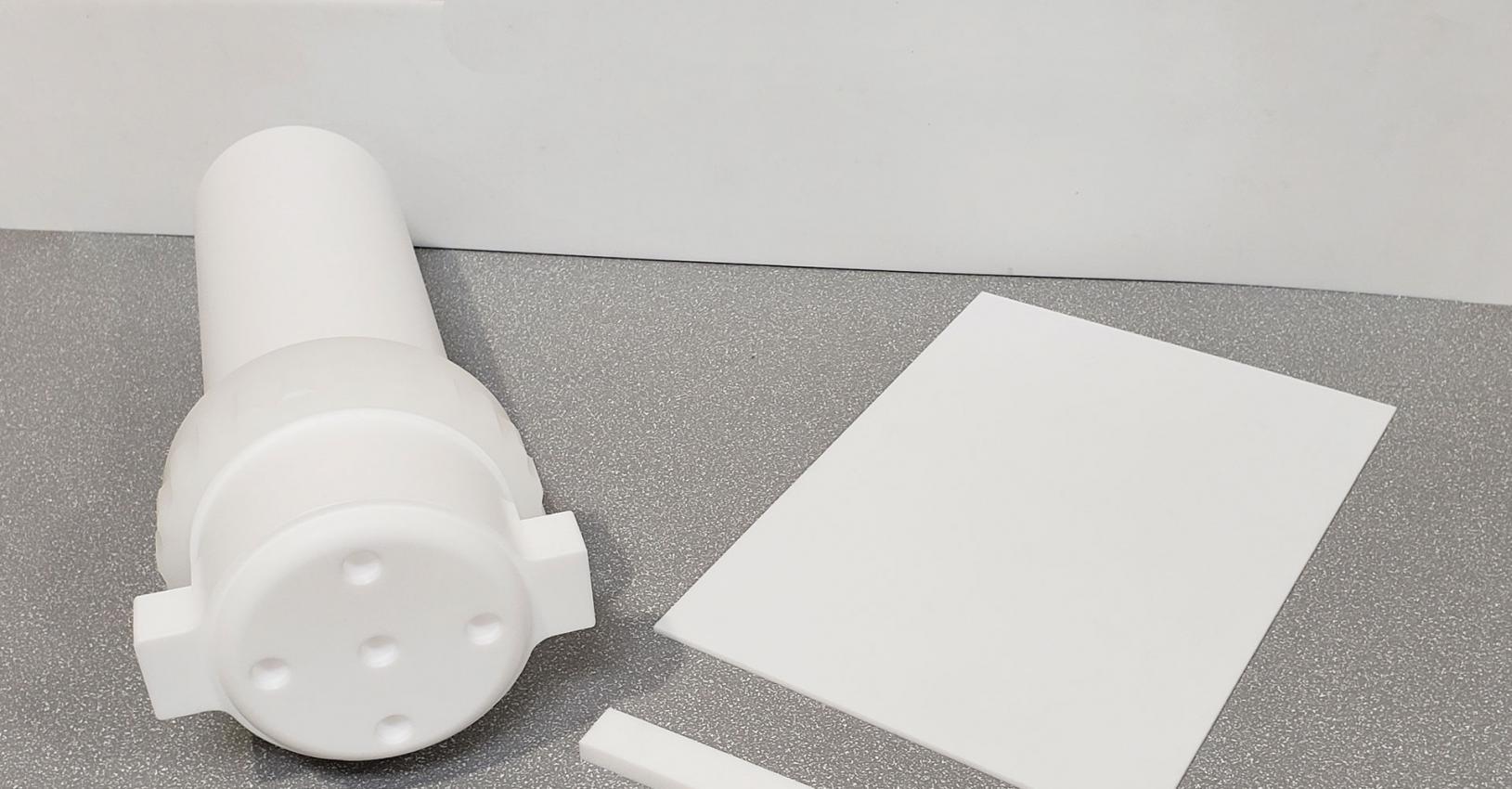
- Pharmaceutical Industry
In the pharmaceutical industry, PFA is used in the manufacturing of biopharmaceutical and pharmaceutical processing equipment. PFA’s high purity makes it an ideal material for these applications as it minimizes the risk of contamination, which can have serious consequences for the production of drugs. PFA materials are also non-reactive, which ensures that they do not interact with the processed materials, thereby maintaining the product’s purity.
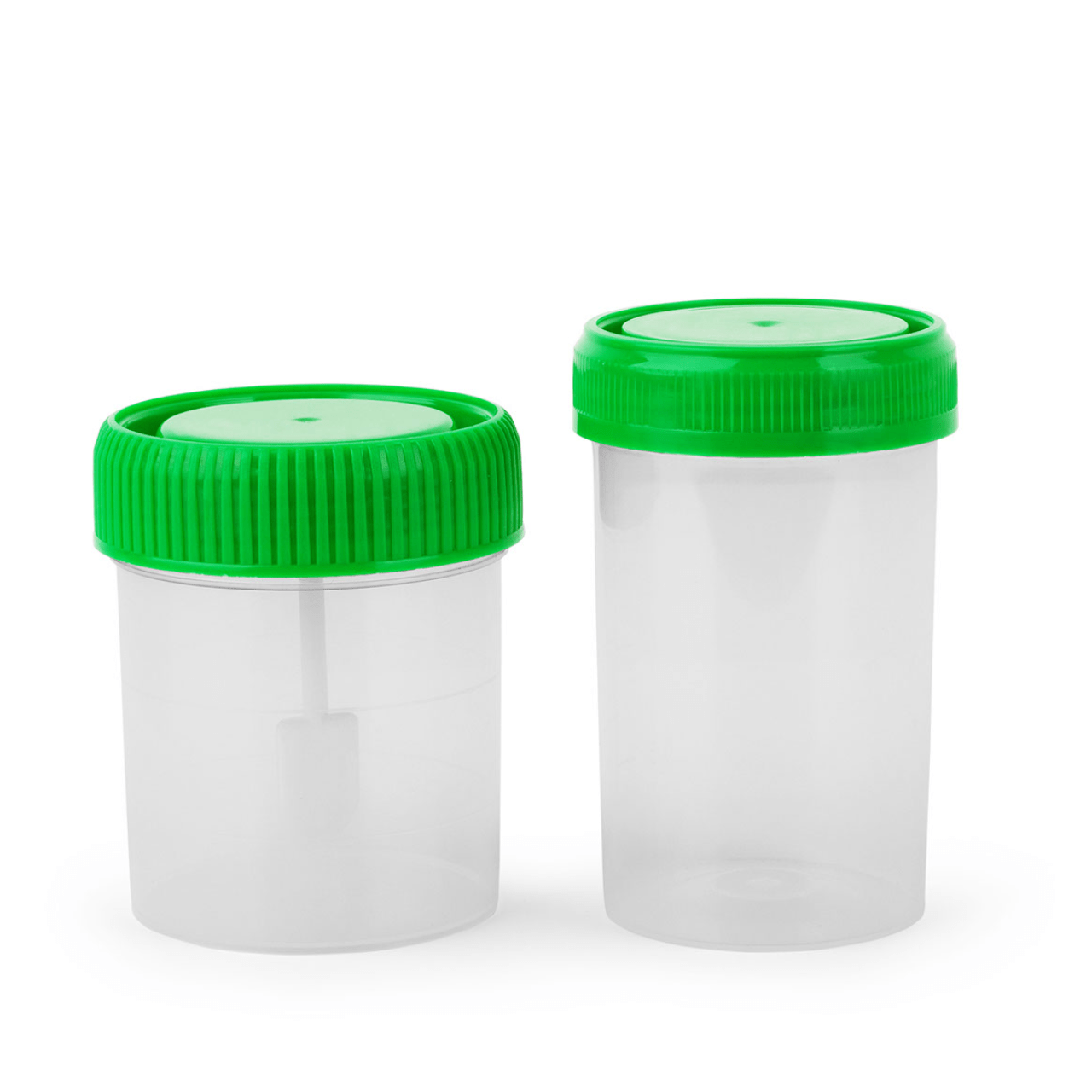
PFA’s excellent chemical resistance is also crucial for applications that involve the use of aggressive chemicals. A specific PFA material used in the pharmaceutical industry is Teflon™ HP PFA, which is known for its high purity and excellent chemical resistance. Compared with other materials, PFA has several advantages that make it an ideal choice for semiconductor and pharmaceutical applications. For instance, it is more resistant to chemicals than other materials such as PVC and polypropylene.
Chemical Process Industries for Coating
PFA has been widely used in the Chemical Process Industries (CPI) for coating applications due to its strong mechanical strength, resistance to cracking and tension, chemical resistance, and electrical insulation properties. One of the most common uses of PFA in the CPI is as a coating material for equipment and components that come into contact with aggressive chemicals.
PFA’s strong mechanical strength ensures that coated surfaces can withstand the stresses and strains of industrial processes, while its resistance to cracking and tension prevents the coating from developing cracks or tears, which can lead to leaks or equipment failure. Additionally, PFA’s electrical insulation properties make it an ideal choice for coating applications that involve electrical components, as it can prevent electrical current from passing through coated surfaces.
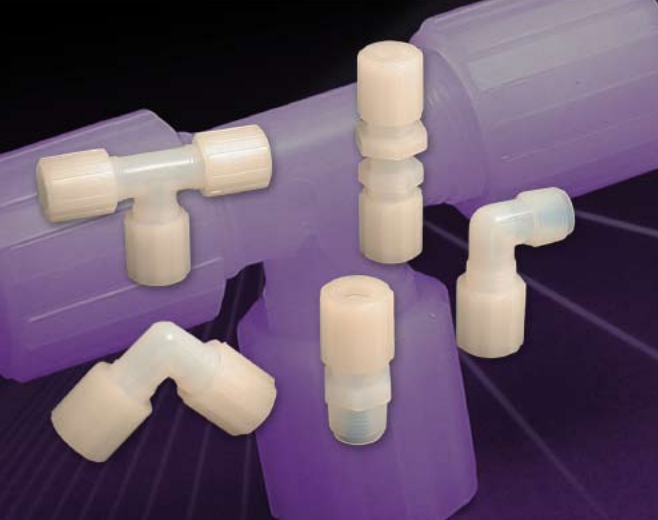
In the CPI, PFA coatings can be used in a variety of applications, including O-Ring & Back-up Ring. These rings are used to seal and protect equipment and components that are exposed to aggressive chemicals because it offers excellent chemical resistance, mechanical strength, and electrical insulation properties, making them an ideal choice for industrial sealing applications.
Laboratory Products
Perfluoroalkoxy is a fluoropolymer that is commonly used in laboratory products. One of the most significant benefits of PFA is its optical clarity, which makes it an ideal material for laboratory products such as plastic laboratory equipment. It allows for better observation and measurement of samples, and it can transmit light without significant distortion or absorption. This makes PFA an excellent choice for laboratory applications (microscopy, spectroscopy, and fluorescence studies) that require clear visibility.
Overall flexibility is another benefit of PFA in laboratory products. PFA’s flexibility allows it to be molded into complex shapes, making it an excellent material for laboratory equipment that requires intricate designs. This makes it an ideal material for applications that require high levels of purity and cleanliness, as it can be molded without the need for additional processing steps that may introduce contaminants.
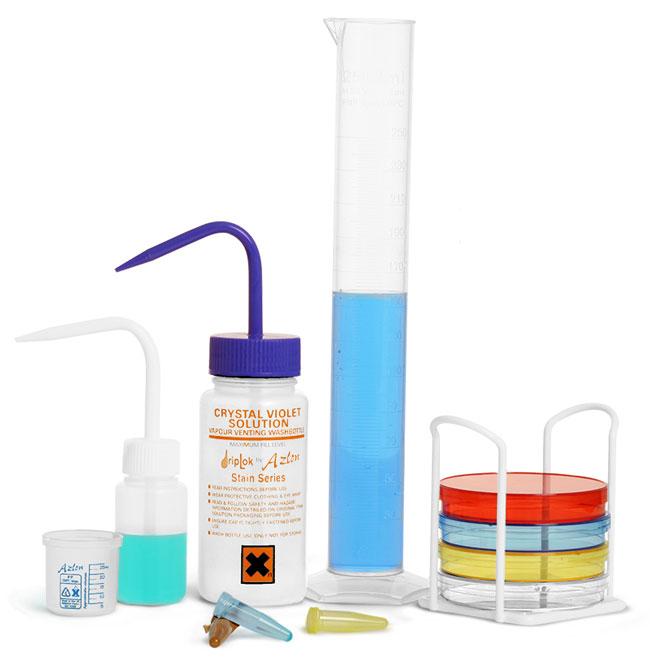
PFA’s great chemical resistance properties make it a suitable material for laboratory products that come into contact with aggressive chemicals. PFA is resistant to a wide range of chemicals, including strong acids, bases, and solvents. This makes it an ideal material for sheet lining for chemical equipment, which provides additional protection against chemical corrosion and contamination.
When compared to other materials commonly used in laboratory products, such as glass and plastic, PFA offers several advantages. For example, PFA is more flexible than glass and less brittle than plastic, making it a more durable material for laboratory equipment.
Insulating Bushings
PFA plastics are widely used in the manufacture of insulating bushings, which are essential components in various electrical and industrial applications. PFA plastics offer a range of benefits, including high chemical resistance and translucence, making them an ideal choice for insulating bushings used in harsh and demanding environments.
One of the most significant advantages of PFA plastics in insulating bushings is their excellent chemical resistance. PFA plastics are highly resistant to chemical attacks, including acids, bases, solvents, and oxidizers. This makes them suitable for use in applications where exposure to harsh chemicals is likely, such as gas scrubbers and reactors. PFA plastics are also resistant to high temperatures, ensuring that they remain stable and reliable in demanding applications.
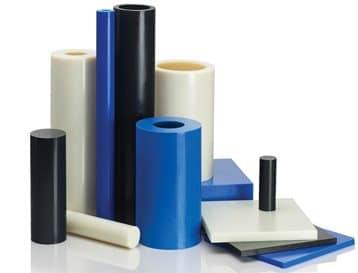
Another benefit of PFA plastics is their translucence, which enables light transmission through the material. This makes them an ideal choice for applications where visibility is important, such as in electrical insulation. PFA plastics are also electrically insulating, making them suitable for use in electrical equipment and components, such as insulating bushings.
Compared to other materials commonly used in insulating bushings, such as ceramics and glass, PFA plastics offer several advantages because they are more chemically resistant than ceramics and glass. In addition, they are a more durable and reliable material for insulating bushings used in harsh environments. They are also more flexible than ceramics and glass, making them easier to install and use in various applications.
The table below gives a summary of all that has been discussed thus far:
| – | Application | Benefit | Product (example) |
| 1 | Semiconductor and Pharmaceutical Industry | 1. Chemical Resistance 2. Low Extractables 3. High Purity | 1. Wafer Processing Equipment 2. Semiconductor Baskets |
| 2 | Chemical Process Industries for coating | 1. Strong Mechanical Strength 2. Resist to Cracking And Tension 3. Chemical Resistance 4. Electrical Insulation | O-Ring & Back-Up Ring |
| 3 | Laboratory products | 1. Optical Clarity 2. Overall Flexibility 3. Great Chemical Resistance | 1. Plastic Laboratory Equipment 2. Sheet Lining for Chemical Equipment |
| 4 | Insulating bushings | 1. Chemically Resistant 2. Translucence | 1. Electrical Insulation 2. Gas Scrubbers and Reactors |
Distinguish PFA from Other Materials
The unique properties of PFA plastics, including high chemical resistance, low extractables, and high purity, distinguish them from other materials commonly used in various industries. Yet in some cases, knowing the similarities helps spot the differences. Let’s start with PFA vs PTFE.
PFA vs PTFE
PFA and PTFE are both fluoropolymer materials with unique properties that make them useful in various industrial applications. However, there are some key differences and similarities between the two materials.
Differences:
- PFA has a higher melting point than PTFE, which makes it more suitable for use in high-temperature applications.
- It is more transparent than PTFE, making it suitable for applications where visibility is important.
- PFA is more flexible than PTFE, making it easier to handle and process.
- It has better impact resistance than PTFE.
Similarities:
- Both PFA and PTFE have excellent chemical resistance, making them suitable for use in harsh environments.
- They have low coefficients of friction and excellent electrical insulation properties
To distinguish PFA from PTFE, businessmen can check the material’s color and transparency. PFA is usually clear or translucent, while PTFE is typically white or off-white. Another way to distinguish the two materials is to check the processing temperature. PFA can be processed at higher temperatures than PTFE.
In terms of scenarios where PFA polymer is more suitable for use, it is often used in high-temperature applications, such as semiconductor equipment and chemical processing, where PTFE may not be able to withstand the temperatures involved. PFA is also more suitable for applications where visibility is important, such as laboratory products, due to its transparency. Additionally, PFA’s flexibility and impact resistance make it easier to handle and process than PTFE in certain applications.
PFA vs FEP
PFA and FEP are both fluoropolymer materials with similar properties that make them useful in various industrial applications. However, there are some key differences between the two materials.
Differences:
- PFA has a higher melting point than FEP, which makes it more suitable for use in high-temperature applications.
- FEP has a lower chemical resistance than PFA, which makes PFA suitable for use in harsh environments.
- PFA has better mechanical properties than FEP, making it more durable and resistant to wear and tear.
- FEP has a higher coefficient of friction than PFA, making PFA better suited for applications where low friction is desired.
Similarities:
- They both have excellent electrical insulation properties, making them suitable for use in electrical applications.
- Both materials have low coefficients of friction, making them useful in applications where low friction is desired.
- PFA and FEP have good UV resistance, making them suitable for use in outdoor applications.
To distinguish PFA polymer from FEP, businessmen can check the material’s processing temperature. PFA can be processed at higher temperatures than FEP. Additionally, PFA is typically more transparent and has a higher melting point than FEP.
PFA is more suitable for use in high-temperature applications, such as semiconductor equipment and chemical processing, where FEP may not be able to withstand the temperatures involved. It is also more suitable for applications where high chemical resistance is required, such as in the pharmaceutical industry. Additionally, PFA’s better mechanical properties and lower coefficient of friction make it more suitable for wear-resistant and low-friction applications than FEP.
A Trustworthy PFA Plastic Material Provider
DECHENGWANG is a well-established manufacturer and supplier of high-quality PFA materials. With decades of experience in the industry, DECHENGWANG has built a strong reputation for producing some of the best fluoropolymer materials available in the market.
They provide a wide range of goods and services related to fluoroplastics, including PFA resins, PFA compounds, PFA tubing, and PFA-lined pipes and fittings. Their PFA materials are of exceptional quality and are used in a variety of applications across various industries, including semiconductor, chemical, pharmaceutical, and laboratory.
DECHENGWANG’s PFA resins are of the highest quality and are used to manufacture various PFA products, including tubing, sheets, and films. The company offers PFA resins with varying melt flow rates to meet the needs of different applications.

DECHENGWANG’s PFA compounds are used to manufacture complex parts that require a combination of properties, such as chemical resistance, high-temperature stability, and electrical insulation. These compounds are customized to meet the specific requirements of their customers.
DECHENGWANG also offers PFA tubing that can be used in high-temperature and corrosive environments. The tubing is available in a range of sizes and wall thicknesses to meet various application requirements.
In addition to PFA materials, DECHENGWANG also provides PFA-lined pipes and fittings, which are used in chemical processing plants and other industrial applications where corrosive chemicals are handled. These pipes and fittings are designed to withstand harsh chemical environments and provide long-lasting performance.
Overall, DECHENGWANG is a reliable and trustworthy manufacturer of PFA materials, with a range of products that cater to various applications across different industries. Their materials are of exceptional quality and are manufactured using the latest technology to ensure consistent performance and reliability.
Conclusion
Our article has provided a deep understanding of what is PFA plastic material. In addition, it introduces DECHENGWANG as an excellent choice for businesses that require high-quality PFA materials. Their products are used in various industries, including semiconductors, chemicals, pharmaceuticals, and laboratories. DECHENGWANG provides a range of PFA products, such as PFA resins, PFA compounds, PFA tubing, and PFA-lined pipes and fittings.
They also offer customized solutions to meet specific application requirements. If you are a businessman looking for a reliable supplier of PFA materials, DECHENGWANG is an excellent choice. Their materials are of exceptional quality and are manufactured using the latest technology. By choosing DECHENGWANG, you can be confident that you are getting high-performance materials that will meet your needs.
To get a quote or learn more about DECHENGWANG’s products and services, we encourage you to get in touch with their team. They will be happy to assist you and provide you with all the information you need to make an informed decision. Contact DECHENGWANG today and take the first step in securing high-quality PFA materials for your business.

